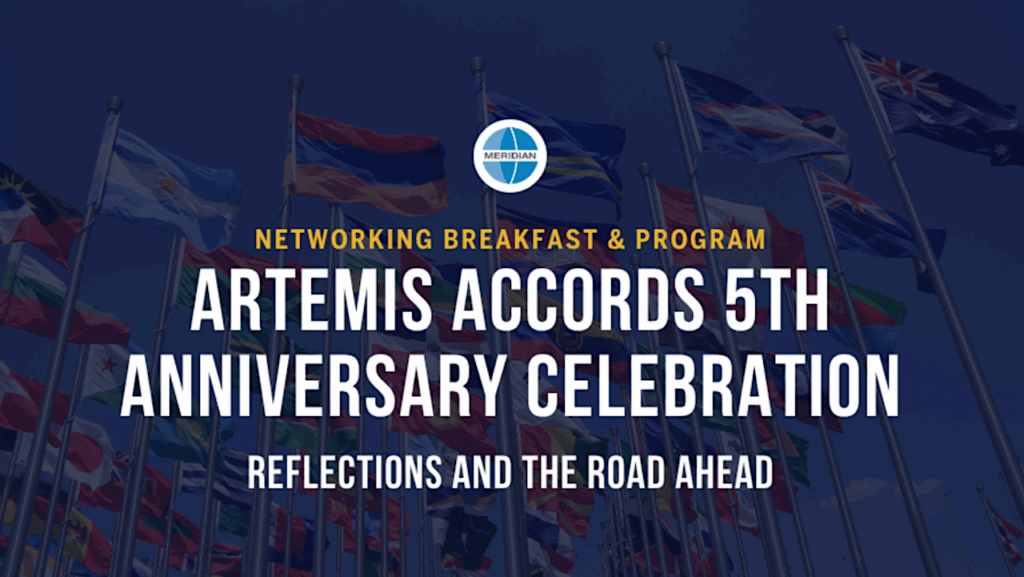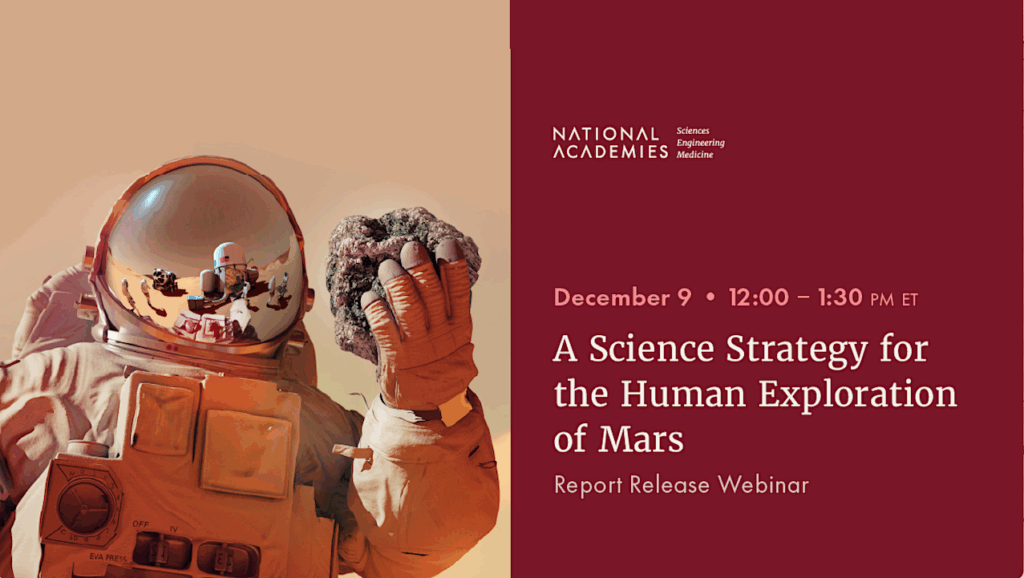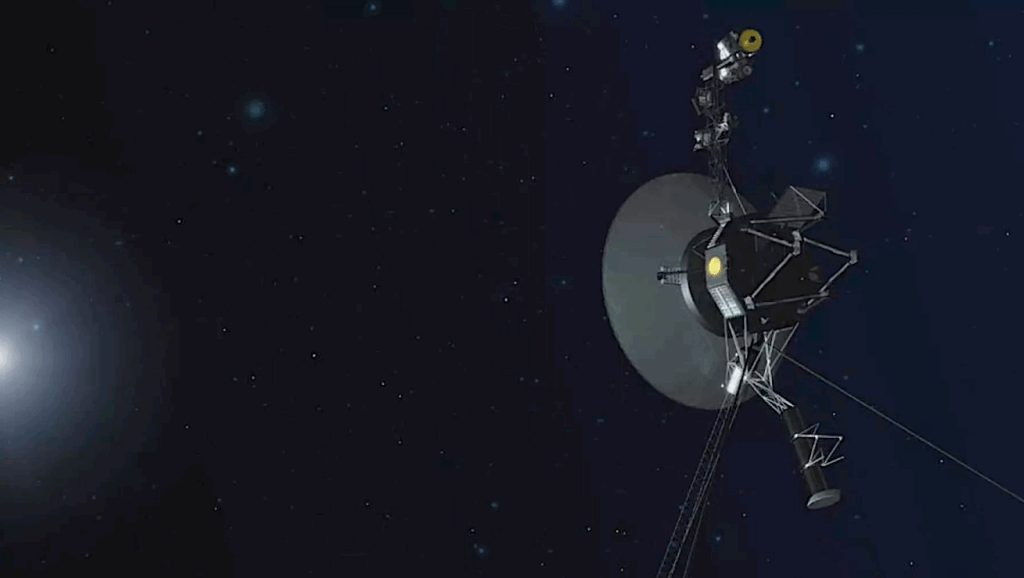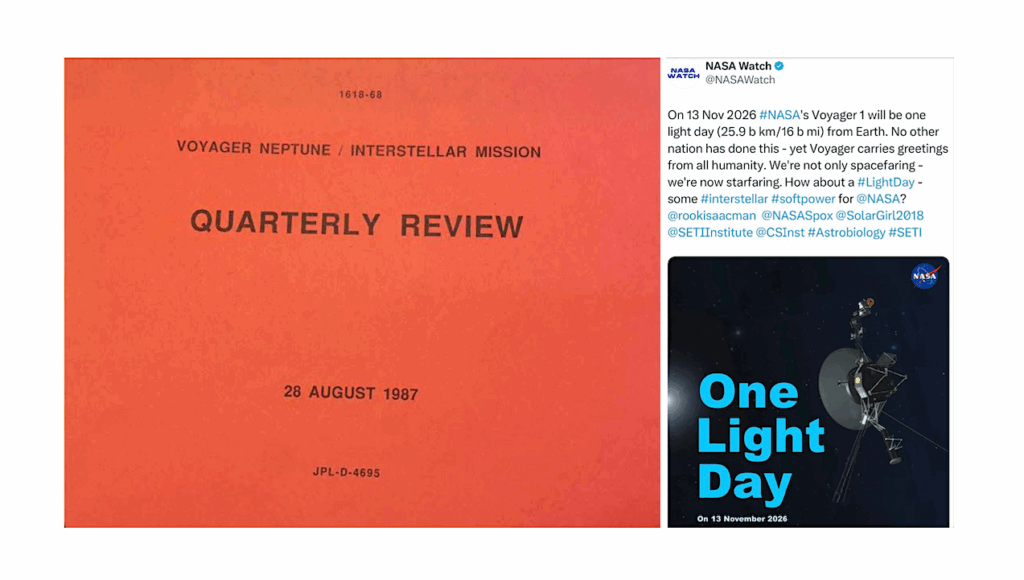Space Goals Worthy of a Great Nation
 The Vision for Space Exploration: After the Vision, What Next? (Part 5), Paul Spudis
The Vision for Space Exploration: After the Vision, What Next? (Part 5), Paul Spudis
“Many of us working in or with NASA recognized that the 2004 Vision for Space Exploration (VSE) was a breakthrough, the necessary fulcrum needed to change our approach and direction to spaceflight. It was a program that would have opened the door to a wide variety of previously unobtainable missions. In this five-part series to establish and clarify the history and intent of the VSE, I’ve shared my insider’s perspective on why and how it was conceived, executed and eventually terminated – a cautionary tale, if you will, and hopefully, an instructive one. In this last post, I want to examine what lessons should be drawn from this history and how we should move forward in a positive way to have and to build a U.S. space program truly “worthy of a great nation.”









What Paul is talking about is a total lack of strategy. This should be the take away lesson that someone in NASA tries to understand.
Constellation, starting right from the ESAS, was a doomed, half-ass design, rush to try and do something. I, for one, was never quite sure what it was trying to accomplish. Replacement of Shuttle? Moon missions? Trips to Mars? That it was trying to repeat Apollo; the mistakes of the past should have been enough of a lesson to let people know it would not succeed, certainly not in the long term; certainly not on a constrained budget and there was certainly no reason to think the budget would rise dramatically.
As was made clear in the VSE, the goal has got to be steady, paced, step-by-step advancement. Even the current talk of placing an outpost at L1 or L2; why? You can develop the electrical propulsion cislunar vehicle that has been described http://thespacereview.com/a… but why the immediate or even near term goal of assembly and manning at 200000 miles or more? It just makes it more logistically challenging to support. Why not build it at your LEO base, the ISS, using common logistical support. As the electrical propulsion capability is added and enhanced, it can cruise to higher orbits and eventually all the way to the moon. A stop at a Lagrangian point just becomes a way station if and when we establish a need to go there. It might be useful for helping to establish or maintain the Webb telescope. Maybe it could be used for operating lunar-based robots. But what is the rush to get ‘there’ ? Is there even a there there? Isn’t it more important to develop a long-term sustainable capability?
Similarly, steps ought to be laid out for other advancements, like an in situ demonstration of the use of lunar or asteroid resources. Why aren’t we figuring out how tough it is to do the job before we either count on a capability that might be too expensive and too difficult, or alternatively, discarding the idea in favor of a Mars direct approach using systems we do not have.
First, fix the problems like lack of NASA strategy and lack of any kind of a plan, short or long term. Then lay it out, step-by-step, 4 or 5 years at a time, stage by stage, options and decision points built in, how we get from here to wherever we are going.
Very good background information, however:
The message of the Spudis article and of Bush’s VSE and the other manned-space policies seems to be that we don’t need an objective reason to send humans to deep space targets. Exploration for the sake of exploration is unquestioned.
There doesn’t even seem to be any expectation or wish that a justification will ever become part of America’s manned space exploration, even by the supposedly fateful 2030’s.
I think the idea is to further develop, extend, improve and enhance the technology and the capabilities. The goal is to reduce costs and ultimately to develop profit. Those are the objective reasons.
Airliners were not profitable until NACA developed streamlined cowls and several other enhancements. Wooden airplanes were deemed unsafe after football coach Knute Rockne was killed in the crash of a Fokker when it was determined the main wing spar had rotted. Then airliners began to be made out of metal. The first 30 years of airplanes and airliners were not profitable, but the US government subsidized the industry with airmail contracts. Once enhancements were in place after about 30 years, the Boeing 247 and the DC-3 began to make profits. DC-3s also permitted the first attempt at a long term antarctic base (which was unsuccessful and had to be abandoned). By adding tricycle landing gear, another initiative of the NACA, airplanes became safer to operate and more flights could be added to airports and airlines.
In the case of aviation, the primary goal was not exploration, although some of that was done in going higher, faster, farther, and more distant or difficult locations, but what was developed were new industries in manufacturing and transportation and an extension of the economic world through inexpensive transportation of goods and people.
The goals of spaceflight are not dissimilar.
I’d say transportation was a practical justification for aviation. I don’t see how showing that it wasn’t profitable would show it wasn’t purposeful in a practical sense.
Depends on profitable. Most people were used to gtting themselves & their products from place to place at the speed of a train. For the most part, people are still content to ship their goods by rail.
Craig,
And yet, when the faster long-distance transportation became available with planes, new markets quickly emerged which made a big impact on what we considered normal, like fruit and vegetables year round, and fresh sea food. These were clearly profit motivated actions.As for what the actual “goals” of space flight are, I would say that lack of agreement on this question is at the root of all our lack of progress in developing space.
Steve
The “objective reason” for human space flight for which all philosophers would give a thumbs-up to is … species expansion. No other way to do it. That’s not to say it’s a good reason, but it sure is an objective one.
Resource development, manufacturing, science … all those things can increasingly be done robotically or at least telerobotically. But putting people elsewhere requires, well, putting people elsewhere!
I am convinced that Paul Spudis regards species expansion (as in, colonization and settlement) as a prime noble goal for human space travel. Trouble is, no administration or Congress has done the same. I mean, NASA has been authorized to achieve human presence across the solar system, but that could just mean one very lonely astronaut.
There are good reasons for such species expansion. Specifically, insurance against bad things happening to it. But Congress is looking out to defend the nation, not the species.
Trouble is, no administration or Congress has done the same. I mean, NASA has been authorized to achieve human presence across the solar system, but that could just mean one very lonely astronaut.
You keep saying this but I have shown you time after time that this is not the case. The problem has always unfortunately been in the implementation by NASA. Starting with an unsustainable heavy lift has always been the death knell to exploration.
… and you keep waving your hands and pretending that you did show this.
Where, in congressional legislation or even in an Administration document do we hear that colonization, settlement, or species protection is a national goal for human space flight?
VSE mandated extending human presence across the solar system. But if that’s like extending human presence across cis-lunar space, we did that forty years ago with ten people. That’s VERY different than colonization and or settlement.
Please understand. I think it would be marvelous if that were cogently stated as a national goal. But it hasn’t happened.
100th Congress2d Session
H.R. 4218
To require the National Aeronautics and Space Administration to investigate and promote the development of human settlements in space, and for other purposes.
http://www.nss.org/resource…
95th Congress House Congressional Resolution 451
Concurrent Resolution
Directing the congress and executive agencies to determine
how they may aid in achieving national goals in outer space.
Whereas historically it is an inherent genius of the
American people that we vigorously reach out to explore, to fulfill and to
enhance the resources of new and challenging frontiers, for the benefit of all
humanity: and
Whereas the magnificent achievements of our explorations
into space in the past twenty years have proved decisively that this tine Earth
is not humanity’s prison, is not a closed and dwindling resources, but is in
fact on part of a vast, expanding system rich in extraterrestrial opportunities
as yet far beyond our comprehension, a “high frontier” which irresistibly beckons
and challenges the American genius: and
Whereas our ventures into space, though daring, have not
been rash, but have in fact succeeded only because of rigorous disciplined,
careful analysis, planning, training, and skilled performance, thus
establishing standards and precedents which must continue to guide all further
national policy decisions and efforts in space: and
Whereas in 1977, as we cross the threshold into our Nation’s
third century, because many Americans seem for the moment beset and confused by
complex problems, discouraged by alleged “Limits to Growth” and by careless
waste of this Earth’s resources, there is thus a crucial need to identify and
enunciate both immediate and long-term national gals which shall unite and
inspire the free, competitive American people, guiding and galvanizing our
inherent genius to explore, to innovate, to learn, to achieve; and
Whereas the “High Frontier” of Space does provide valid
opportunities whereby we can help conserve and enhance humanity’s existence on
Earth, including but not limited to such social and economic benefits as
greater employment, a cleaner environment, new energy sources, new knowledge
and understanding, improve health, education, living standards, and
international cooperation as inspiring goals for our third century; Now,
therefore, be it
Thinking long-term, I suspect that the Chinese attitude toward solar system industrialization, resource utilization, energy utilization, and species expansion are far in advance of anything being considered in the USA.
There are a lot of Chinese who would like to take back the mistakes of the Ming emperors and see space as the way to do that.
As a simple rule:
Any result projected from a manned mission should be compared to the results possible from an unmanned mission or missions of similar cost.
Those costs should be based on real experience, not claims of proponents, like the original predicted costs of orbiting payloads by the Shuttle, or the claims that Constellation was the cheapest and quickest something. The Spudis article cites $500 billion, in 1990 dollars, for the VSE to Mars. How many MSLs and MSRs is that?
And to me it’s a matter of common sense, not philosophy.
Seeking knowledge should be valid and completely sufficient reason for philosopher.
Space has to pay for itself. Space Mirrors can do that now. So can microwave SPS. We have set up public utilities before. Why can’t we set up one specifically for space solar power? We can, but it will take vision and leadership.
I am not opposed to manned exploration at all. I just think we have our priorities backwards. We should be making money in space by replacing fossil fuels in gas cars with space solar power used in electric cars.
Dana Andrews has been teaching an award winning senior level class at the University of Washington on the sustainable colonization of the moon. He proposes a huge single stage to orbit rocket he calls THOR with a mass to payload ratio in excess of 40 to one! He wants to mine platinum group metals from lunar asteroid impact sites, and beat the rocket equation by transporting the refined PGM’s back to earth with a giant electric sling.
Tony,
You’ve included several topics into one post, so it’s kind of hard to respond, but they do all have two things in common.
First, they’re all going to need good public relations as a first step because they’ve all been proposed/designed by people who knew what they were talking about, but were publicized as dangerous by people who didn’t know as much. The catch is that the average person doesn’t have the technical education/experience to know who to believe.
For instance, the microwaves sent into the atmosphere by SPSs are deadly; they will kill plants, animals and people as surely as putting them into a microwave oven. Well, this is true; microwaves at the frequency and power level required will kill life, but it is certainly possible to beam the energy down in an unpopulated area, keeping the beams as narrow as possible, and/or raise the receivers up off the ground where they would act like a shield above anything beneath them. That’s great until some well-meaning joker brings up airplanes flying through the beam by mistake or lost kids wandering into the reception area. So a lot of very convincing PR would have to be done before the regulatory agencies would ever permit even a trial.
The second thing that your list of items have in common is that that all still have work to be done yet before they qualify as finished, proven, safe technologies. In some cases, it’s mostly a matter of increasing the efficiency and doing the testing, but some things, like a 40:1 THOR are still a long way from being realized, and may never be.
You say, “Space has to pay for itself,” and in the long run you’re right, of course. The problem is that all of the things on your list (and others like them) are going to require the input of a great deal of money and years of work before they can ever start to show a profit. And this problem is accentuated by the two problems mentioned above.
You say, “it will take vision and leadership.” Yes, it will, but it will also take the things I’ve discussed above. There have been plenty of visionaries, and even leaders, over the decades who have done the essential groundwork on these technologies, and yet we’re really no closer to implementing any of them than we were when they were each first proposed, and that is the task we need desperately to look at — how do we get the progress, money, public acceptance and commitment necessary to make these improvements to our world a reality. How do we get the ball rolling? Answer that and you’ll be rich.
Steve
Steve,
Thanks for responding. Have you read Lew’s paper on orbital mirrors?
http://jxcrystals.com/publi…
The pay back period is less than six months! Solar power and electric cars are game changers. All we need is someone with deep pockets to actually read and understand Lew’s concept. It does not involve microwave transmission at all. It uses already existing solar farms all over the world. Lew is uniquely qualified with both solar energy and space experience.
Please read his whole six page paper. We could use your help in promoting his idea in government and space circles.
As I understand it, the Ages of Exploration through Colonialism were based on cost-effectiveness; there was wealth to be gained, not simply disposed of for vague philosophical reasons.
These VSE type space goals seem to have a pattern to them:
Someone announces an ambitious and supposedly exciting space exploration goal, and then leaves the bulk of specifics, deliverables, expense, risk of failure, or need to back out up to someone else in the future.
JFK didn’t do that in his goal.
“JFK didn’t do that in his goal.“
He certainly did! Even while Kennedy was still alive, it was Lyndon Johnson and Jim Webb who had to deal with all of those things. JFK shook hands and made speeches, end of contribution. If you’ve never talked to anybody who was there, then do some reading. There are dozens of good books with the truth.
“…it was Lyndon Johnson and Jim Webb who had to deal with all of those things.”
Wow! The “truth” is out. A president of the US actually delegated day-to-day NASA related tasks to underlings, like the NASA administrator, whose job it was to do those things? And all he did was fool around leading the country and the free world.
You’re dwelling on day-to-day tasks that a smart president would and should delegate.
-JFK made the official decision to go the Moon, an actually unpopular one.
-He fully funded it at his own personal political risk.
-He set a specific, unheard off goal that was to be reached during his projected tenure, so that he would be the president of record for achieving or failing on that deliverable.
That was a case of bold leadership.
The truth, minus sarcasm, is that it wasn’t JFK’s idea at all. He asked a select group of people what they could
do in space to upstage the Soviets, and someone else in the meeting suggested the Moon mission and estimated the time table.
Also documented is that JFK worried regularly about what all that spending was doing to the American economy and about government interference in industry.
There is a tape recording of a meeting (in 1962, I believe) where Kennedy admits that he doesn’t “really care about space.” He just wanted to “beat the Soviets.”
There were funding battles every year. Mercury, Gemini and Apollo got what money they did only because Congress approved it. LBJ and Webb had to fight for it every year (JFK inconveniently being dead since November 1963).
BTW, if Kennedy had lived and served 2 full terms, he would have been out of office before “the end of the decade” and before the Apollo 11 mission.
Thousands of people did amazing things to make Apollo happen, but as far as JFK goes, it was a case of political one-up-manship, not bold leadership.
Your observations about “contributions” are irrelevant.
I knew that it wasn’t JFK’s idea, and that thousands of people worked on the project. That all has nothing to do with what I’m talking about. Kennedy took the responsibility for the decision and the cost. He didn’t just say we should go into deep space and then drop it and expect future administrations to take the responsibility and seek the funding and bear the brunt of the projects unpopularity and possible failure.
It was all expected to happen during his administration, which would have lasted until January 20 1969. Barring the Apollo 1 disaster, Apollo 11 could have easily happened more than six months earlier.
And let’s not forget, Kennedy hired Johnson and Webb.
And please don’t bother to tell me that Wernher von Braun knew more about rockets than Kennedy.
Mike,
I think the classical plan still holds. You want to mine and refine the aluminum (etc.), in very large quantities, ideal from the asteroid belt — it’s farther away, but has no high gravity well to overcome, and scrap disposal and environmentalism are easy. Once you have aluminum moving “along the conveyor” on a regular basis to Earth orbit, that’s where you further process the aluminum, or maybe even make (the aluminum parts of) the frying pans, depending on logistics/costs at that time.
Orbit to Earth is always going to be easier and cheaper than going up. Once you have a sufficiently large population on Mars to need lots of aluminum frying pans, you clone the Earth orbital system in Mars orbit rather than ship frying pans between planets, because that processing facility is also going to be used for a lot of other purposes.
I think that for a long time to come space industry is going to be materials processing as opposed to manufacturing of finished goods, based simply on mass and energy considerations. Only massive and/or very high volume finished goods which are to be used permanently in space will be logically manufactured in space. Even some things once thought to be possible only in microgravity are now being done on Earth. Of course, in 100 years everything could change.
Steve
The exploitation of the New World was making an overall profit in time short compared to the time the “Space Age” has already existed.
One huge profit driver was the incredible quantities of concentrated silver the Spanish found in South America — hundreds of thousands of tons of the element. Extracting and shipping it was insanely profitable. There is no similar possibility known in space. Even if pure gold ingots were sitting on the lunar surface, we could not currently profitably retrieve them.